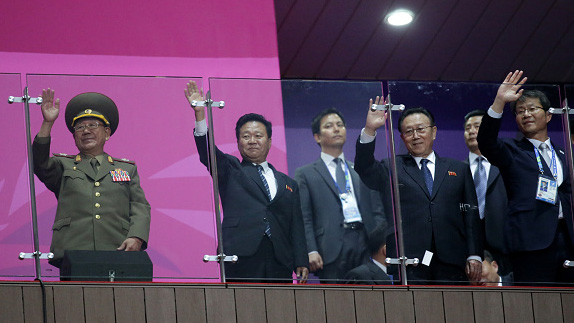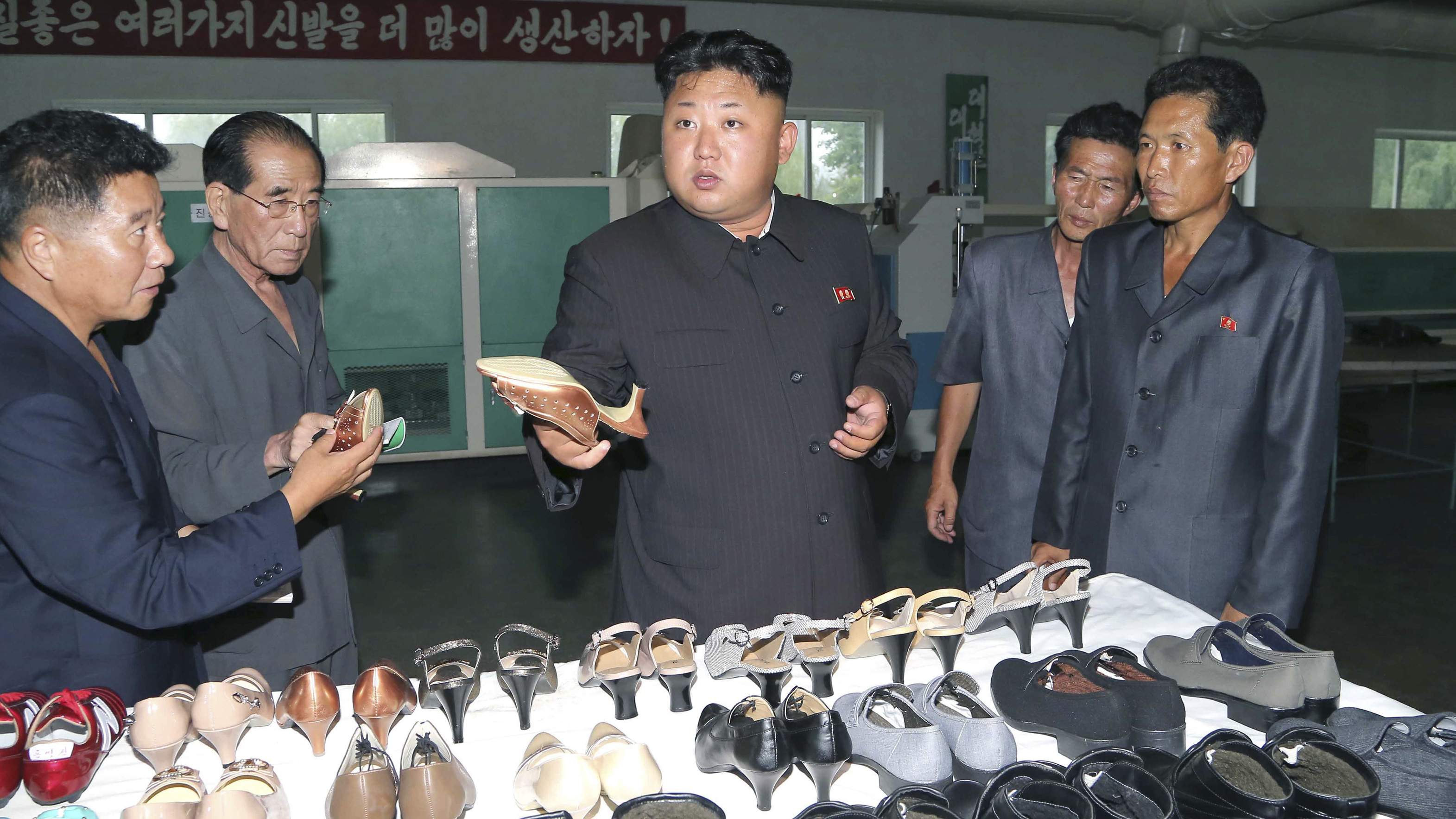North Korea surprises South with a visit. But where’s Kim?
North Korea sends a senior delegation to South Korea as the two countries agree to reopen a dialogue. But where is Kim Jong-un? The North Korean leader has not been seen in public for weeks.

Talks between the two states – still technically at war – have stalled since February, but the North agreed to resume a dialogue between senior officials sometime between late October and early November.
Then on Saturday, a small group of senior North Korean officials attended the closing ceremony of the Asian Games in the South Korean city of Incheon. Pyongyang gave less than 24 hours notice for the surprise visit, and the motivation is still unclear.
Heading the delegation was Hwang Pyong So, a military general considered to be the second most important official after leader Kim Jong-un. Also visiting was Kim Yang Gon, a senior Workers’ Party official and long-time veteran of dealings with the South. Choe Ryong Hae, former head of the military was also present.
“The Asian Games have been a significant event that showcased the nation’s glory and strength to the world,” Kim Yang Gon said at the meeting. “It was an enormous joy and pride for the nation as both the North and the South performed well.”
North Korea leader Kim Jong-un is often described as being a sports enthusiast. He is known to be a fan of basketball and soccer. The secretive state has invested heavily in sporting facilities recently, including a new ski resort.
The visiting delegates are the most senior North Korean officials to meet in the South since South Korean President Park Geun-hye took office early last year.
Health concerns
Observers will be paying close attention to what the delegation has to say to try and discern the health and views of North Korea leader Kim Jong-un.

The 31-year-old has not been seen in public since 3 September, and there has been speculation about his health after recent footage showed him limping and looking overweight. On Thursday, North Korean state TV said Kim was “suffering from discomfort”.
The two Koreas are technically at war because their 1950-53 conflict ended in a truce and not a peace treaty. Armed clashes in recent years have killed soldiers on both sides, and in 2010 civilians were killed when the North bombed a Southern island.
Nuclear weapons
South Korea cut off political and commercial ties with the North that year, when one of its navy ships was torpedoed and sunk, killing 46 sailors. Seoul blamed Pyongyang for the attack.
The attacks, along with the North’s nuclear weapons programme and human rights abuses, have resulted in inter-Korean relations deteriorating sharply in recent years.
Hopes of a peaceful resolution have repeatedly been dashed, with the North reneging on deals, walking out on talks and threatening to punish its neighbour with a “sea of fire”.
South Korea insists Pyongyang must denuclearise before the two sides to come closer together, but few believe the North will ever surrender the ultimate weapon because it provides security for both the country and the government itself.